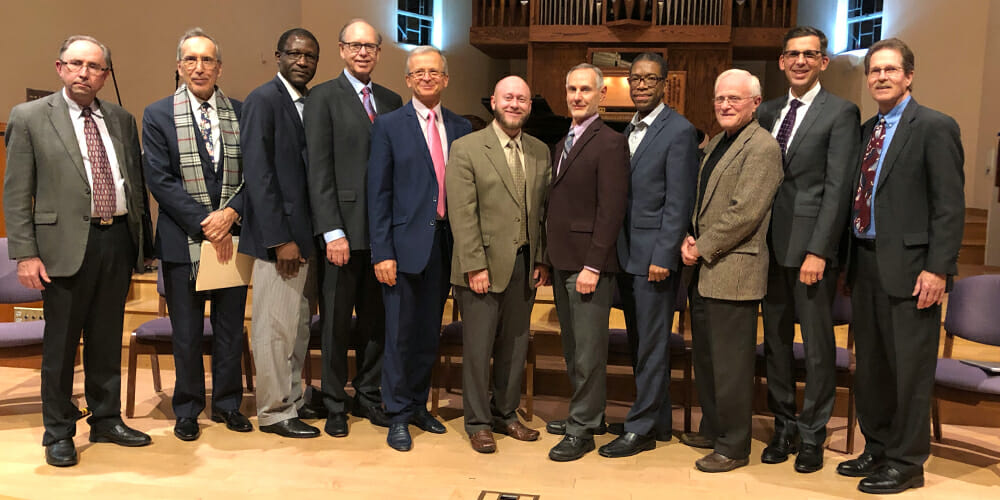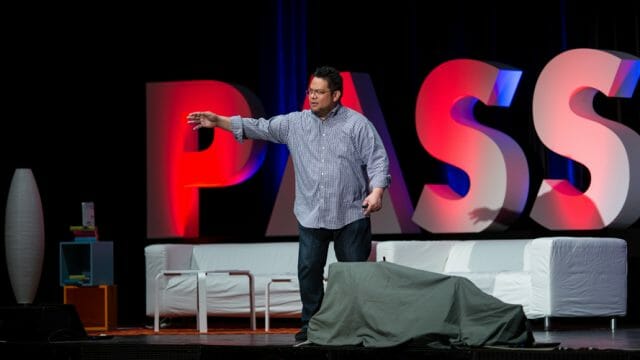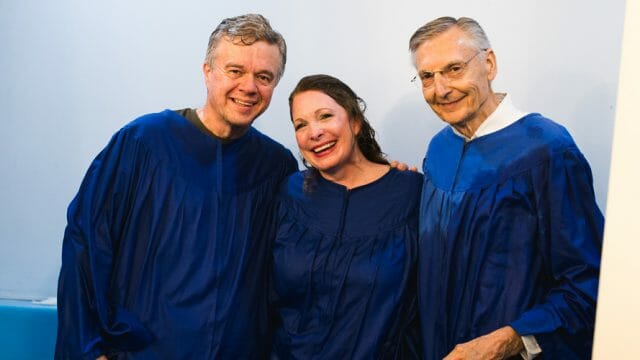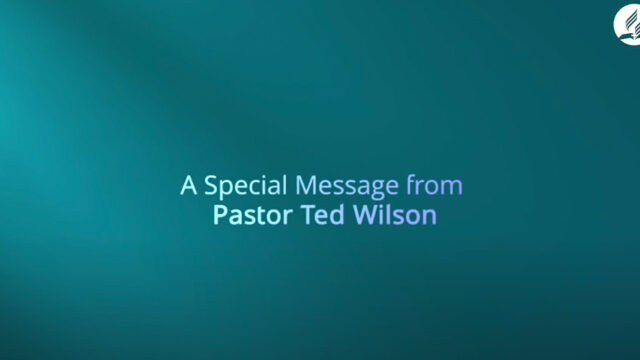“Transforming Worldviews” event asks hard questions, attempts answers.

What do Adventist millennials and other demographic groups think about Adventism? More urgently, how do they interpret the world? What kinds of answers are Adventist theologians providing in response to their questions?
To consider and propose sound responses to these intellectual and moral questions, the Seventh-day Adventist Theological Seminary conducted a symposium on the campus of Andrews University in Berrien Springs, Michigan, United States. The October 18-20, 2018 event followed the theme “Transforming Worldviews: Biblical Faithfulness in a Pluralistic Age.”
Keynote Address
The keynote address was delivered by renowned theologian and scholar Kevin J. Vanhoozer, research professor of Systematic Theology at Trinity Evangelical Divinity School in Deerfield, Illinois, United States. Vanhoozer expressed his delight at being on the campus of the Adventist seminary, especially because it gave him the opportunity to meet again several of the seminary’s scholars with whom he has been closely associated in one capacity or another, including as their teacher.
In his opening remarks, Vanhoozer set about to define worldview for his audience. “Worldview is the software that runs our lives, a map that orients our life in the world, and a control story,” he said. But his pointed question was, “Whose story?”
Worldview and Mission
Several papers presented at the symposium set out to discuss how worldview can inform the Christian way of relating to mission, something that is considered a central theme in the divine revelations recorded in the Bible. Among them was Andrews University assistant professor of world mission Boubakar Sanou, who presented on “Exegeting the Bible and the Social Location of the Gospel Recipients: A Case for Worldview Transformation.”
Sanou reminded attendees that in God’s efforts to reach and redeem sinful humans, He often resorted to creative ways that may sometimes seem unorthodox. “Because humans are all influenced and limited by the assumptions of their social locations … God took into consideration their less-than-perfect contextual frame of reference in the process of revealing His Word to them so that they could meaningfully relate to Him,” he said.
Sanou then stated that today, “people cannot be confronted with things that are beyond their frame of reference and be expected to respond positively to them.” This is why “biblical interpreters need to exegete their intended readers’ social location with the same rigor they apply to the exegesis of biblical texts.” This will help readers to “respond to and make intelligent decisions in favor of the gospel,” he said.
Two Years in the Making
Organizers said the conference was two years from planning to execution and was born of a concern that Seminary dean Jiří Moskala raised with his faculty. “I recognized that worldview goes beyond a focus on hermeneutics to the thinking that lies behind our interpretive activity,” Moskala said, “and that the presuppositions informing our interpretive activity need themselves to be informed and shaped by the Bible.”
Organizers explained the goal of the exercise was to highlight the fundamental importance of what presenters identified as a biblical worldview or a biblically shaped worldview.
Associate professor of ethics and theology Ante Jeroncic, who led the symposium steering committee, added, “We held this conference not just because we live in a culture with a plurality of worldviews, but also because the global church is facing the challenge of unstated worldview commitments undermining the ethical practices of Adventists.”
Organizers believe a major strength of the symposium was the widely varying cultural perspectives and academic disciplines that characterized the eighteen other scholarly papers presented throughout the event. The conference closed with a panel discussion on Sabbath afternoon featuring seven presenters and moderated by Moskala.
Along with the Seventh-day Adventist Theological Seminary, other entities that co-sponsored the event were the General Conference Biblical Research Institute (BRI) and the Adventist Theological Society (ATS). Another symposium, this time on the topic of theodicy, is being contemplated for a later date, organizers said.








